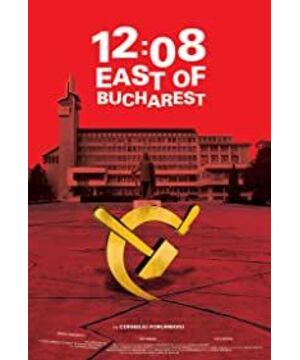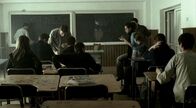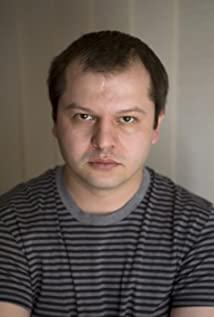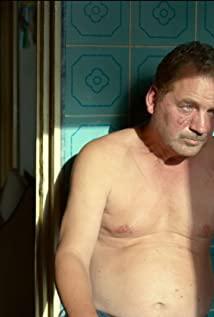"A revolution never belongs to the one who starts it first, but always to the one who finishes it last and takes it like a trophy for himself."
From "Bucharest East 12:8" to "California Dream" to "April Three Weeks Two Days"... Romanian films have broken through the haze and stood in the world with an unprecedented force. The top of the movie, opened a new chapter. As a small country in Eastern Europe, Romania really has no advantage in the film industry, especially after the great changes in the 1980s, the film industry system is even more fragile and vulnerable. Romania, which originally had a small number of films, has not only seen a continuous decrease in the number of feature films in the following decades, but also other types of films.
The year 2000 was a very special year for Romanian cinema, in which no feature films came out, hence the name "Romania Year Zero". And that year was also a breaking point for Romanian cinema. In 2001, "Anonymous Money" shot by Christian Puyo opened a new wave of Romanian cinema, giving Romanian cinema new vitality and vitality.
Kristi Puyo's films have provided a model for many directors in later generations, uncertainty, life-like dialogue, natural performance, deliberately vague political atmosphere and so on. This feature, "Bucharest East 12:80", is also inherited by Cornelius Bolamboyu's feature film debut.
revolution:
Revolution is a topic that cannot be avoided in Eastern European films. The same is true of "12:08 East of Bucharest", but Poland Boyu chose a more sophisticated angle to make the revolution more engaging and realistic. At the beginning of the film, it introduces the environment of a small town in the east of Bucharest. It is quiet and depressing. With the lights on and off, the small town opens the prelude to life. In fact, in such a small city, no one cares about the revolution. Father Piscos lost his wife in middle age, lived alone after retirement, and was keen to play Santa Claus. Maniscu is a depressed history professor who often gets drunk late at night and borrows money to drink. The TV station director is busy aimlessly, racking his brains to produce some programs that hope to get attention. A few bits and pieces constitute the most basic picture of Romanian life, and it is in such a picture that the revolution started a prairie fire.
Revolutionaries need to bear all the hardships for their ideals, including all kinds of estrangements and misunderstandings that will inevitably arise within the revolutionary camp, which is the so-called "purgatory" of the revolution. However, in the revolutionary era, revolution is the highest purpose, and the individual is the overall situation. Socialist countries like to use various concepts to interpret revolution. In fact, revolution is nothing but a carnival of anarchists. They use "revolution" to cover up their selfish desires and ugliness.
In "Bucharest East 12:80", the truth about history is put on the agenda, what are you doing on December 22, 1989 at 12:80? This seemingly boring question is actually full of profound meaning. Has history become what people subconsciously hoped for, or has history never changed.
Whether it is Maniscu, Piscos, or the director of a TV station, life seems to have not changed, and what the revolution is is still unclear.
director:
There are not many movies of Cornelius Bolan Boyu, and the styles are very similar. It can be seen that Cornelius Bo Lanboyu is a director who likes to use irony very much. Political metaphors can be seen everywhere in his films, the lighting and extinguishing of street lamps, the roar of cannonballs, the predictions of today's snowflakes and tomorrow's muddy... These are the usual techniques of Cornelius Bolamboyu.
In addition to their own political and cultural characteristics, the works of Cornelius Bolamboyu and other New Wave directors also inherited some Italian neorealism styles. For example, low-cost, handheld photography, long-lens, live-action shooting, good at describing the lives and struggles of ordinary people, and the lens mostly focuses on real issues in Romania.
"Bucharest East 12:08" is the first feature film of Polish Boyu. Because he had a short film as the basis, he chose a very clever angle, but unfortunately, this kind of cleverness did not spread to the whole film. . The first half of the film is too procrastinated, although it can be understood that the director wants the characters to be too full, but at the same time it makes the plot too boring. The second half of the interview is too rough and hasty. Although there are golden lines and lines, it is undeniable that they have not done enough in terms of political satire.
From the beginning of the Romanian New Wave in 2001 to 2006, the whole Romanian film is still in the exploratory stage, so "Bucharest East 12:8" is also full of some experimental film characteristics, simple props, simple plot, simple design It propped up half of the entire film and dramatic conflict. From the overall look and feel, it is not very smooth, but many parts of the film are still full of Bo Lan Boyu's careful scheming, such as the confrontation at the beginning and the end, the metaphor of Father Piscos about the revolution, the Chinese merchants this The setting of a character, etc., from these places, we can see the intentions of Polish Boyu.
In a word, revolution is a very sensitive word, and Bo Lanboyu probably took this into consideration when he made this film, so the whole film feels restrained, restrained, and a sense of some unavoidable compromises.
"There are two versions of history, one is printed on books, and the other is branded in people's minds." The director tried to tell the truth about the Romanian Revolution, but people seem to be more willing to believe the "truth" in their hearts. In the midst of many contradictions, Cornelius Bolan Boyu left this intractable puzzle in the eternal light and shadow.
View more about 12:08 East of Bucharest reviews











